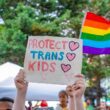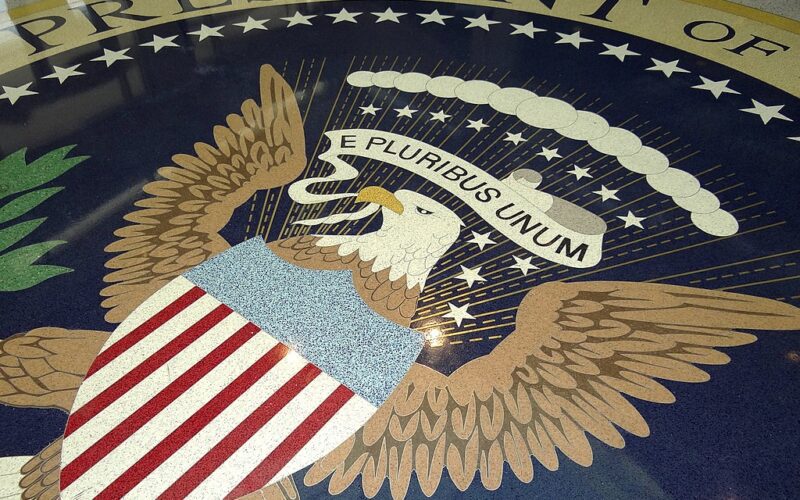Sign up here to receive The Yappie’s weekly briefing on Asian American + Pacific Islander politics and support our work by making a donation.
U.S. foreign policy is an oft-overlooked variable when examining mental health needs among AAPIs, but a new report spotlights it as a key driver in mental health disparities that persist among AAPI subgroups today.
The report—published last week by AAPI Data and the UCLA Center for Health Policy Research—states that it aims to steer “a more nuanced discourse … that connects present-day mental health needs with the systemic barriers and multi-generational trauma that were often byproducts of U.S. foreign policy.”
The breakdown: Nearly 24% of Native Hawaiian and Pacific Islander (NHPI) adults say they need mental health support compared to 16% of Asian American (AA) adults, according to the report. While those figures are on par with or lower than California’s overall population (24%), the report’s authors warn that self-identified mental health needs may not provide a complete picture.
- Nearly half of NHPI and AA adults also report everyday experiences with discrimination—both groups say they’re often asked where they’re from and receive poorer service in restaurants and stores, though Asian Americans say they’re also at times treated as if they don’t speak English. Much of COVID-driven anti-Asian hate was also a direct result of China bashing and scapegoating.
- Gun violence is an additional anxiety for 45% of NHPIs and 46% of AAs—higher than California’s overall population (30%).
Worth noting: A November AAPI Data/AP-NORC survey found that a majority of AAPI adults rated their mental health as “very good or excellent” even though almost 7 in 10 experienced anxiety stressors—a reflection of the gap in self-identified need.
Yes, but: Of those who do seek mental health support, roughly 4 in 10 NHPIs and 3 in 10 AAs report that they encounter barriers to accessing care, such as cost, awareness of options, and lack of insurance, per AAPI Data’s analysis with the UCLA Center for Health Policy Research.
Go deeper: What the report categorized as “Other Southeast Asians”—including Laotian, Cambodian, and Thai people)—reported the highest rates of difficulty accessing mental health support at 53% compared to 31% of Asian Americans overall. Vietnamese adult respondents reported the second-highest rates of difficulty, at 37%.
- For Filipino Americans surveyed, the report shared how legacies of war-induced trauma and colonization created a culture of “survivor mentality” that interferes with help-seeking behavior.
- For Native Hawaiians and Pacific Islanders, U.S. colonization and subsequent militarization similarly “created a complicated web of immigration statuses governing the access of NHPIs to essential services and resources.”
- Many may be U.S. nationals from U.S. territories or migrants from countries that are part of the Compact of Free Association, but lack of full U.S. citizenship means limited access to public benefits and can contribute to long-term socioeconomic and health inequities.
Different AAPI subgroups have vastly different historical contexts in relation to their journeys to the U.S. Many Southeast Asians, for example, came to the U.S. as refugees and in the aftermath of war and violence throughout Southeast Asia. In turn, the mental health outcomes for different subgroups can vary widely.
- The report is part of a wider push for disaggregated data and more nuanced conversations around differing experiences for Native Hawaiians, Pacific Islanders, and Asian American subgroups.
- “Community-informed research is foundational to addressing the distinct mental health needs of Asian American, Native Hawaiian, and Pacific Islander communities,” AAPI Data founder and director Karthik Ramakrishnan said in a press release.
Expanding mental health awareness and anti-stigma interventions, training a culturally and linguistically diverse mental health workforce, and increasing the number of care providers were among the report’s policy recommendations for improving mental health outcomes.
Methodology: The analysis is based on data from the UCLA Center for Health Policy Research’s California Health Interview Survey from 2020 through 2022, an annual “population-representative” health survey for Californians.
- Researchers conducted follow-up interviews for AAPIs who responded to the initial survey to gather further data.
This story appeared as “The Big Story” in The Yappie’s March 5, 2024 newsletter.
The Yappie is your must-read briefing on AAPI power, politics, and influence, fiscally sponsored by the Asian American Journalists Association. Make a donation, subscribe, and follow us on Twitter (@theyappie). Send tips and feedback to [email protected].









